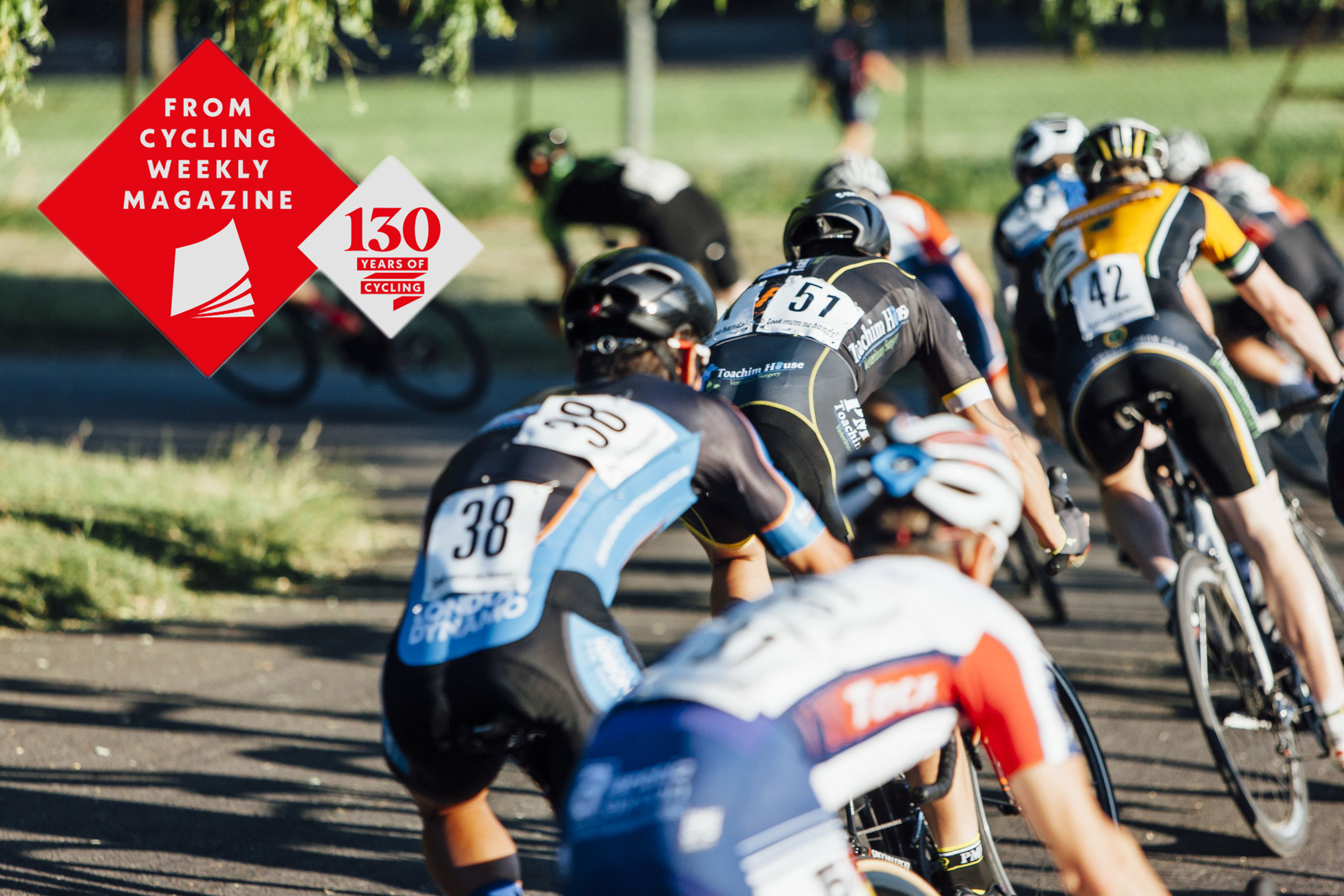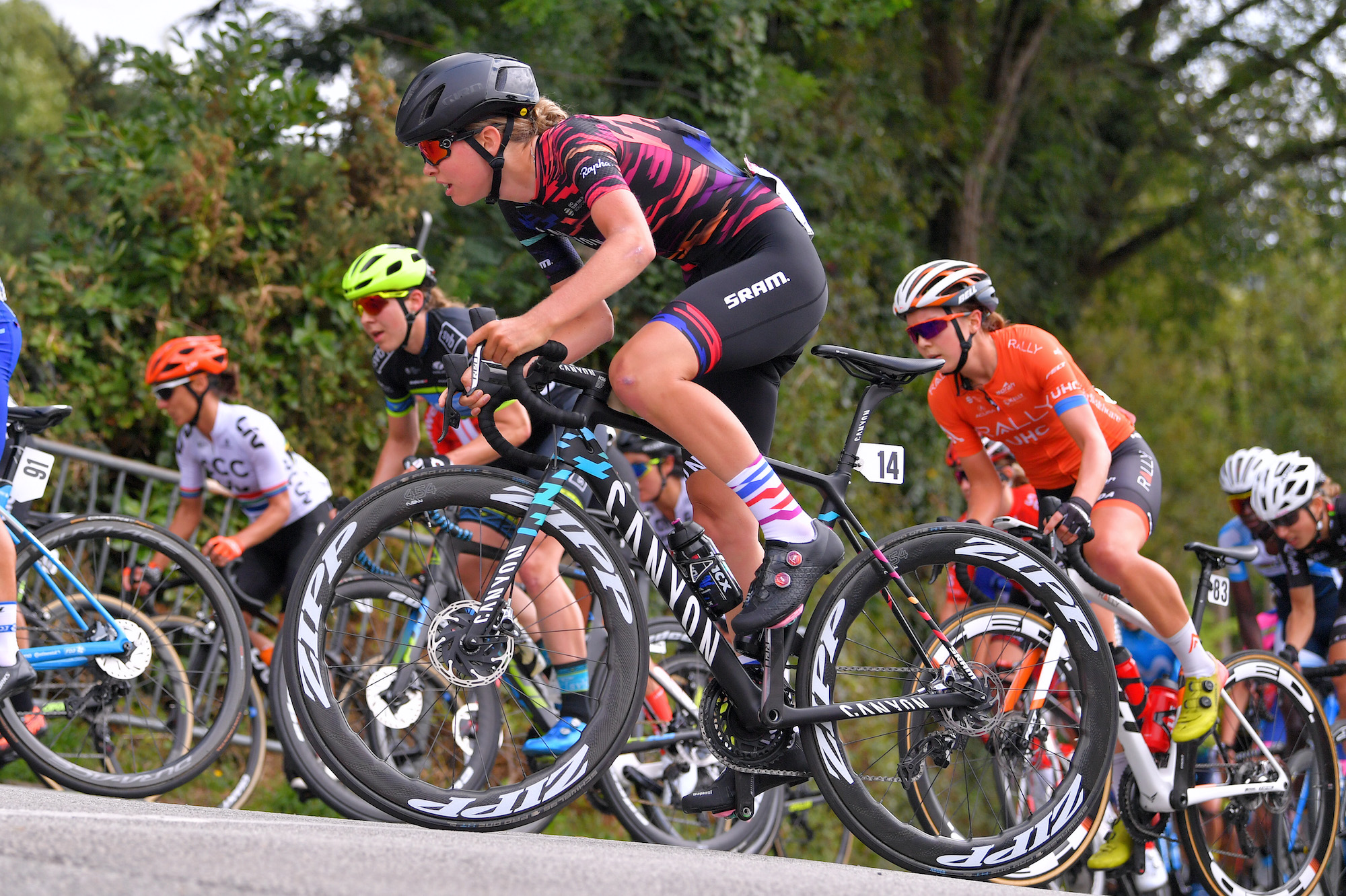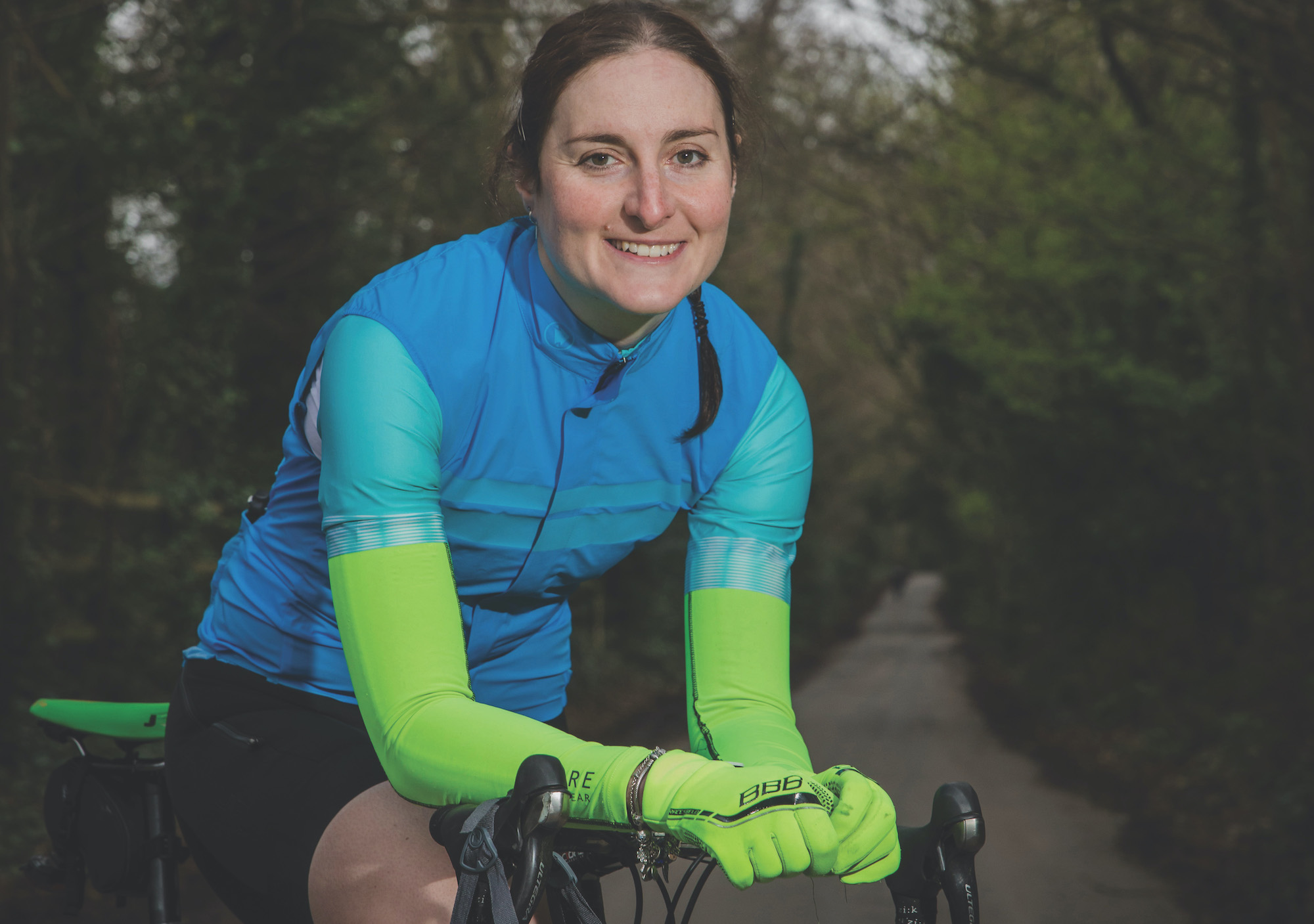You ARE a real cyclist: Taking on impostor syndrome
In a sport hung up on rules and details, it’s easy to feel you’re falling short of the mark and failing to fit in. Dr Josephine Perry goes to work on impostor syndrome


The latest race content, interviews, features, reviews and expert buying guides, direct to your inbox!
You are now subscribed
Your newsletter sign-up was successful
We tend to think of cycling as brilliantly accessible. It takes us on adventures, provides the backbone of our social life and, if you commute by bike, saves thousands on motoring expenses. But cycling is not always as accessible as we like to think, and newcomers often feel shut out. From the obscure ‘rules’ that we only know exist when we’re mocked for having broken them, to the ‘secret squirrel’ developments in technology, to the multitude of acronyms and arcane language combining French, Italian and English words referencing a history that it takes years to learn. Hardly surprisingly, then, that none of us is immune from occasionally feeling like an outsider.
>>> Find the inner strength within: The three pillars of self-motivation
This has an impact, often a very painful one, which as a sports psychologist I encounter regularly in the people who call me for support. Typically they tell me they love cycling and believe they are competent riders, before adding a caveat: “But I’m not a real cyclist”. This inability to regard oneself as a ‘real cyclist’ is the result of impostor syndrome. By any objective measure, you’re a successful rider and part of the cycling community, but self-doubt persists and you constantly feel as though you’re about to be exposed as a fraud. If you feel this way, you are not alone – a meta-analysis involving 14,000 participants found as many as 82 per cent of cyclists have experienced these feelings.
“Impostor Syndrome can mean a rider under-performs and takes the safer option,” says Gary McKeegan, a physiologist and coach based in Northern Ireland. “They may avoid certain events or scenarios that they feel have the potential to expose them as impostors.” No one wins races sitting safely in the peloton – great riders need to be able to take risks. These riders also tend to attribute success to luck, and assume compliments they’re paid are mere politeness, while their achievements are chalked up as flukes. They feel constantly intimidated and insecure, in a permanent state of threat – and with such negative thoughts occupying their headspace, their riding is compromised and they’re liable to become mentally exhausted.
>>> Subscriptions deals for Cycling Weekly magazine
Where does this impostor syndrome come from and how can we get a better handle on it? In this feature, I will examine four key causes and identify some tried and tested ways to boost cycling confidence so you can fully own your place in the sport.
Take the test: Do I have impostor syndrome?
How many of these do you identify with? If you answer yes to the majority of the statements below, you may be suffering from cycling impostor syndrome.
- I rarely celebrate success because I don’t feel like I deserve it or have really earnt it.
- I often use phrases like: ‘I just got lucky’ or ‘I only did well because no one decent showed up today’.
- I often bat away compliments.
- I often see myself just outside groups I am officially part of.
- I’ll spend more time after a race or ride focusing on what went wrong rather than what went well.
Athletic identity
Our rational brain tells us that anyone who rides a bike is self-evidently a cyclist. But being an athlete is so wrapped up in our own narrative about what that identity means that we can find ourselves not living up to a projected standard. These thoughts may be rooted in childhood, for example memories of school days when we weren’t as sporty as our classmates; for others, the insecurity relates to owning a bike that doesn’t live up to our mental image of a ‘real cyclist’; while others feel that they aren’t fast enough, disqualifying themselves on fitness grounds.
The latest race content, interviews, features, reviews and expert buying guides, direct to your inbox!

Ella Harris went out of the club pan and into the WorldTeam fire
Impostor syndrome is more of a state than a trait, insists McKeegan – and this means it’s possible to salvage confidence in your cycling identity. He urges riders to assess whether pressure or expectation from others is playing a part in this struggle. If you were overlooked or excluded from team selection or development opportunities in the past, are those memories still haunting you?
Founder of the social cycling community Dirty Weekend (dirtywknd.com), David Bavin believes that having good connections with other riders is central to athletic identity. “The majority of people who come to us feel like they are not proper cyclists,” says Bavin. “A lot of people are afraid in group riding – they don’t want to cause issues or cause others to have to wait for them.” But the sooner we join in, the sooner these fears are dispelled. “It will happen more quickly when you join a group rather than ploughing away on your own.”
Traits and characteristics
Certain in-built personality traits can make us more susceptible to impostor syndrome. Studies have identified higher levels of pessimism, perfectionism and neuroticism as predisposing impostor syndrome. These traits make it more likely you’ll worry about how to fit in socially or whether you have adequate ability.
David Tilbury-Davis is a coach who has identified another hallmark of impostor syndrome among elite athletes: intrinsic motivation. Where athletes are driven by internal thoughts and feelings rather than external factors such as feedback from others, they tend to ramp up pressure on themselves. “These athletes want to understand what they are doing, feel the accomplishment and experience the stimulation of racing and competing and training.” If they fall short of their own high bar, they are likely to feel isolated and fraudulent.
“The sooner you join in, the sooner these fears will be dispelled”
The irony is that this mindset is often an important part of what makes elite riders successful. “It is two sides of the same coin,” explains Tilbury-Davis. “You cannot be a world-class athlete if you are always comfortable with how you are progressing and what you are achieving. I think impostor syndrome is more common in elite athletes because that is what drives them – a persistent desire for perfection.”
How best to respond as a coach? “I let them explore ways of dealing with it or compartmentalising it without blowing smoke up their ass,” laughs Tilbury-Davis. “I try to help them navigate in a much more pragmatic way.”
Overriding our personality or characteristics is a big ask – but what we can do is focus on the things that really matter. We know that when an athlete understands their core values as a human, that influences their motivational practices and drivers. In this way, a rider might come to conclude, for example, that setting a positive example to their son or daughter is more important than fulfilling their own perfectionism – hiding from fears is no longer acceptable.
New environments
Impostor syndrome most frequently rears its ugly head when we step up a level. Someone who did this a couple of years ago is 2019 Zwift Academy winner Ella Harris. Her prize was a contract with UCI WorldTour Team Canyon-SRAM. When she first joined the team, Harris was suddenly in a very different environment from the club racing she was used to in New Zealand.
It wasn’t the cycling part that called for a big adjustment, it was the environment. “I was suddenly hanging out with people who had been pro athletes for years and had been to the Olympics,” says 22-year-old Harris. “I had to learn to adapt fast. I soon realised some things are not seen as kosher in this environment – what you can and can’t do. There are lots of secret rules – rules that you learn by breaking them… such as knocking on the campervan before you enter in case someone is changing or on the toilet!”
In this new world, Harris didn’t feel like a professional bike rider for a while. “I remember when I was introduced as the [Zwift Academy] winner at team camp, I knew I would have to fit in with the team and make myself part of it, integrate myself – and that is a daunting experience. Until I was able to contribute something to the team, and until other riders realised I could get results for them and be up there in the mix, I felt I was continually having to prove my worth.”
What is Harris’s advice for others in a similar position? “Lap it up and soak up the experience – learn from watching, listening and observing the others. Many of my team-mates had been in the sport for a long time – I needed to learn from the environment and my peers.”
British rider Alice Lethbridge went through similar issues when she diversified from time trialling (she holds the competition records for 12 hours and 100 miles) and joined a Zwift team for racing over lockdown. “I felt like the weak link in the team,” admits the 36-year-old. “I was in a pickle, overtraining and under-fuelling, and wore myself out trying to keep up with the others when I didn’t need to.” Part of the problem was that Lethbridge wasn’t used to being part of a team. “Before, I was mainly time trialling, and that is very individual. Here, if you don’t have a great result, you are letting down other people.”
Having grown comfortable with the team environment, Lethbridge is now helping others to fit in. “Cycling can feel a little unfriendly at times – and I think that is where my confidence issues come from. Marianne Vos said that a true champion will help others up to their level rather than push them down.”
The culture
We all need a sense of belonging to give our lives meaning, and this certainly applies to cycling too. One way to develop this sense of belonging is to create rules and in-jokes, share history and specialist language. This helps some of us fit in well, but leaves many others – those who break rules they didn’t know existed – feeling excluded.

Lethbridge made the tough transition from lone time triallist to Zwift team player
This culture fascinated author Tom Bowley so much that he has written a book on it. BeSpoke, released on 3 May, is a glossary of terms you need to know if you want to fit in (and understand) the coverage of the Tour de France or join in the pro riding chat on a club ride. “Cycling is more accessible than any other sports, in many ways,” says Bowley. “You don’t need a ticket for the Tour – just turn up to watch.”
While anyone can turn up to a bike race, it’s cycling’s internal culture that harbours a secretive element. “Cycling has always had a slightly secretive, clubby thing, with performance tests having to be done secretly by yourself early in the morning and the drug culture going back years, so it doesn’t feel as open and inclusive as it should be. Even positive elements like the secret squirrel club looking at ways to tweak and improve the Team GB kit had an exclusionary element to it.”
Unwritten rules: ‘There to be broken’
We asked CW readers to tell us the unofficial rules of cycling – the type that, though they might seem funny, can actually make unaccustomed riders feel uneasy or even excluded. Think carefully before policing these too inflexibly...
- Line up your tyre logos with the rim decal.
- Headset and stacker logos must all be in line.
- If you touch the chain on your leg, the mark gets classed as a Cat 4 tattoo.
- The route must always go anti-clockwise.
- All bike photos must be
taken from drive side with crank arms level.
- Leg-warmers must come off before arm-warmers.
- Never wear colourful socks in the summer – but also never wear black socks with shorts.
- Bottle cages have to match each other and the frame. Bottles have to match each other. Bar tape must match the frame, or saddle, or kit, or socks.
- Nod, smile or wave at all other riders – you may judge them harshly if it isn’t reciprocated.
Bowley’s book offers a grounding in the knowledge and history of the sport, allowing newcomers to get to grips with the language and conversations they’re likely to encounter on the club run. Of course, you don’t need to read a book to fit in – but it’s one way to get a head-start on learning technicalities.
Whether your cycling impostor syndrome comes from your non-sporty childhood, your innate personality traits, or simply from characteristics you have developed, finding a comfortable place to fit in amid cycling’s strange culture, myriad rules and long history can feel intimidating. Most cyclists have had these feelings at some point, and most will have empathy for your feelings if you speak openly. Throw yourself in, get involved, volunteer and encourage others, and find what matters to you as a cyclist. Try out different groups until you find your tribe – then you will make a great start. And finally, every time you react to your successes with “Wow, I was lucky there”, give yourself some credit and acknowledge, “I worked hard” – soon enough, impostor syndrome will be squashed.
This feature originally appeared in the print edition of Cycling Weekly, on sale in newsagents and supermarkets, priced £3.25.
You can subscribe through this link here.
That way you’ll never miss an issue.
Dr Josephine Perry is a Chartered Sport and Exercise Psychologist whose purpose is to help people discover the metrics which matter most to them so they are able to accomplish more than they had previously believed possible. She integrates expertise in sport psychology and communications to support athletes, stage performers and business leaders to develop the approaches, mental skills and strategies which will help them achieve their ambitions. Josephine has written five books including Performing Under Pressure, The 10 Pillars of Success and I Can: The Teenage Athlete’s Guide to Mental Fitness. For Cycling Weekly she tends to write about the psychological side of training and racing and how to manage mental health issues which may prevent brilliant performance. At last count she owned eight bikes and so is a passionate advocate of the idea that the ideal number of bikes to own is N+1.
